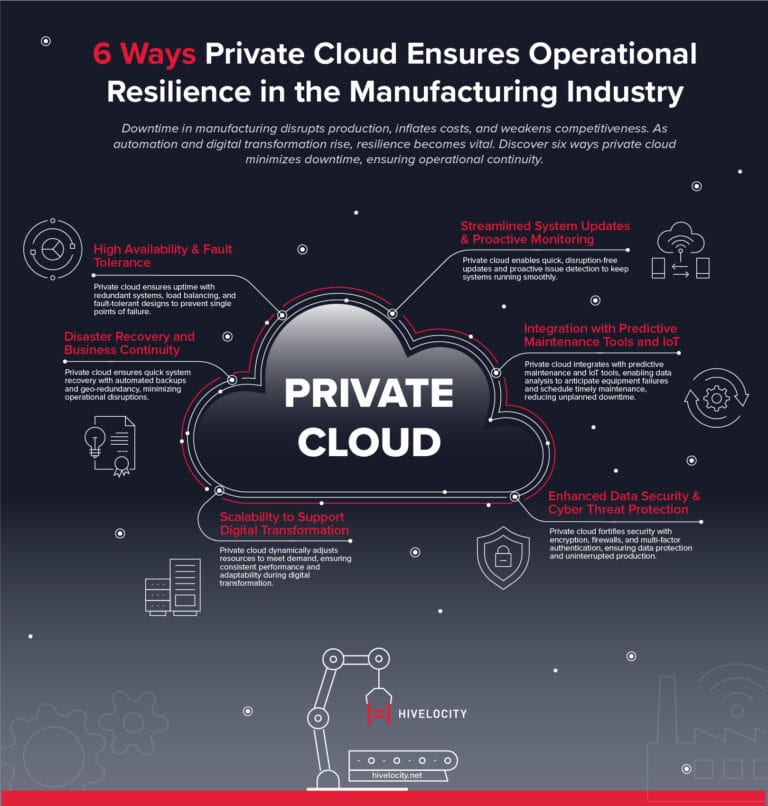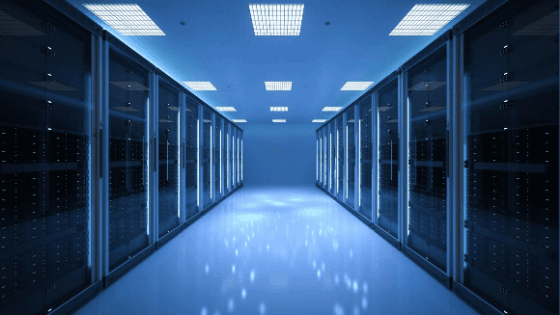
Protecting the Production Line: How Enterprise Cloud Safeguards Manufacturing Operations from Cyber Threats
In today’s interconnected world, manufacturing businesses are more reliant than ever on technology to power their production lines, manage supply chains, and deliver quality products. However, this increased connectivity comes with significant risks. Cyberattacks targeting manufacturing operations have risen in both frequency and sophistication, causing massive disruptions, financial losses, and reputational damage. Manufacturers are particularly vulnerable due to their reliance on legacy systems, the integration of Internet of Things (IoT) devices, and the complexity of global supply chains, underscoring the need for robust cloud and data protection strategies. These vulnerabilities create opportunities for bad actors to exploit weak points and infiltrate critical systems. To combat these threats, enterprise cloud solutions are emerging as the cornerstone of robust cybersecurity strategies for manufacturing businesses, aligning with current cloud protection trends. This blog explores the key threats manufacturers face and how enterprise cloud technology can protect operations and ensure resilience.
Common Cyber Threats in Manufacturing: Ransomware, Phishing and Industrial Espionage Have Devastating Impacts
- Ransomware Attacks and Their Devastating Impact on Production: Ransomware attacks have become one of the most prevalent threats in the manufacturing sector. These attacks encrypt critical data and demand ransom payments to restore access. For manufacturers, the cost of production downtime caused by ransomware often far outweighs the ransom itself. A single attack can bring an entire production line to a halt, delaying orders and damaging customer relationships.
- Industrial Espionage Targeting Intellectual Property: Industrial espionage poses another significant risk. Cybercriminals or competitors may attempt to steal proprietary designs, trade secrets, or manufacturing processes. Such breaches not only result in financial losses but can also erode a company’s competitive advantage.
- Phishing Attacks Compromising Operational Data: Phishing campaigns target employees and can compromise operational data if activated. Becoming increasingly sophisticated, phishing tricks employees into revealing credentials or downloading malicious software, and attackers gain access to critical systems and data. Once inside the network, attackers can disrupt supply chain processes, interfere with production lines, and even shut down machinery through ransomware deployment or other malicious activities. The consequences extend beyond downtime—leading to financial losses, missed production deadlines, and eroded trust with customers and partners. Given the interconnected nature of modern manufacturing systems, a single compromised entry point can have cascading effects throughout the organization and its ecosystem.
How Enterprise Cloud Provides Superior Cybersecurity
- Isolated and Secure Environments for Critical Data and Applications: Enterprise cloud solutions provide fully isolated and dedicated environments tailored exclusively to a single organization. This level of isolation eliminates the risk of cross-contamination or resource sharing issues often present in public cloud environments, where multiple tenants coexist. By leveraging enterprise cloud infrastructure, manufacturers can maintain tighter control over their data, applications, and workflows, significantly reducing exposure to external threats. This enhanced security framework is particularly critical for safeguarding sensitive intellectual property, production data, and proprietary. Additionally, enterprise cloud environments ensure higher reliability and performance, enabling manufacturers to achieve uninterrupted operations, meet stringent compliance requirements, and mitigate risks associated with downtime or data breaches.
- Advanced Encryption Protocols and Access Control: Enterprise cloud platforms leverage cutting-edge encryption technologies to protect data both in transit and at rest, ensuring that sensitive information remains secure even in the event of interception or unauthorized access. These platforms implement robust role-based access control (RBAC) mechanisms, allowing organizations to define granular access policies that restrict data and application access to only authorized personnel. By enforcing the principle of least privilege, enterprise cloud significantly reduces the risk of insider threats, accidental data exposure and malicious breaches. Additionally, advanced auditing and monitoring tools provide continuous visibility into access patterns and potential anomalies, enabling organizations to detect and mitigate threats proactively while maintaining compliance with stringent security standards.
- Regular Security Updates and Patching Managed by Experts: Keeping software and systems up-to-date is a significant challenge for manufacturers, particularly as cyber threats evolve and legacy systems may create vulnerabilities. Enterprise cloud providers alleviate this burden by delivering comprehensive managed services that include continuous security updates and proactive patch management. These updates are performed by dedicated security experts who monitor for emerging vulnerabilities and ensure patches are applied promptly, often before potential exploits can be leveraged by attackers. This proactive approach not only minimizes security gaps but also reduces the risk of downtime or operational disruption caused by unpatched systems. By outsourcing these critical tasks, manufacturers can free up internal IT teams to focus on strategic initiatives, while maintaining a fortified security posture that aligns with industry standards and regulatory compliance requirements.
According to securityintelligence.com
“ …One of the most prevalent forms of cyberattacks in the manufacturing industry is ransomware. Ransomware attacks on industrial control systems doubled in 2022 alone. When manufacturing operations are disrupted, the financial and reputational damage can be severe. Supply chains can be thrown into chaos, leading to production delays and lost revenue.
Another major concern is intellectual property theft. Cyber criminals often target proprietary designs and trade secrets to gain economic or strategic advantages. This type of cyber espionage can be difficult to detect, as attackers may infiltrate networks and exfiltrate data over long periods without being noticed.
Supply chain attacks are also a major concern. In these attacks, cyber criminals target vulnerable third-party suppliers or partners to gain access to a manufacturer’s systems. Since manufacturers often rely on a complex web of suppliers, a breach at one supplier can have a cascading effect across the entire production line.”
Cyber threats to the manufacturing industry are a clear and present danger, with the potential to disrupt operations and cause lasting damage. However, enterprise cloud solutions provide manufacturers with the tools they need to stay secure and resilient. From isolating critical data to ensuring proactive security updates, enterprise cloud technology offers unparalleled protection against modern cyber threats. By investing in enterprise cloud, manufacturers can safeguard their production lines, protect intellectual property, and ensure uninterrupted operations. The long-term benefits—including cost savings, enhanced security, and operational continuity—make enterprise cloud an essential component of any forward-thinking manufacturing strategy.
Don’t wait for a cyberattack to disrupt your operations. Explore how Hivelocity enterprise cloud solutions can fortify your business and keep your production line moving seamlessly.
Enhance your enterprise cloud experience with world-class backup and replication with Veeam and DRaaS solutions with Zerto.

